Research Proposal: Examining Contemporary Global Democracy Trends
VerifiedAdded on 2021/04/24
|5
|778
|30
Report
AI Summary
This research proposal examines the evolution and challenges of global democracy, focusing on the 20th century and beyond. It begins by exploring different schools of thought on democracy, including minimalist and civic republican models, highlighting their strengths and weaknesses. The proposal then delves into the dynamic nature of democracy, analyzing the impact of resource distribution and historical comparisons with totalitarian regimes. The research aims to understand the origins of democracy, drawing from ancient Greek practices and Western adoption. The methodology involves secondary data analysis, with the goal of identifying gaps in the definition and practice of democracy. The proposal concludes by emphasizing the need for a comprehensive understanding of democracy to make recommendations for a more perfect democratic system, while acknowledging limitations in source availability.
1 out of 5
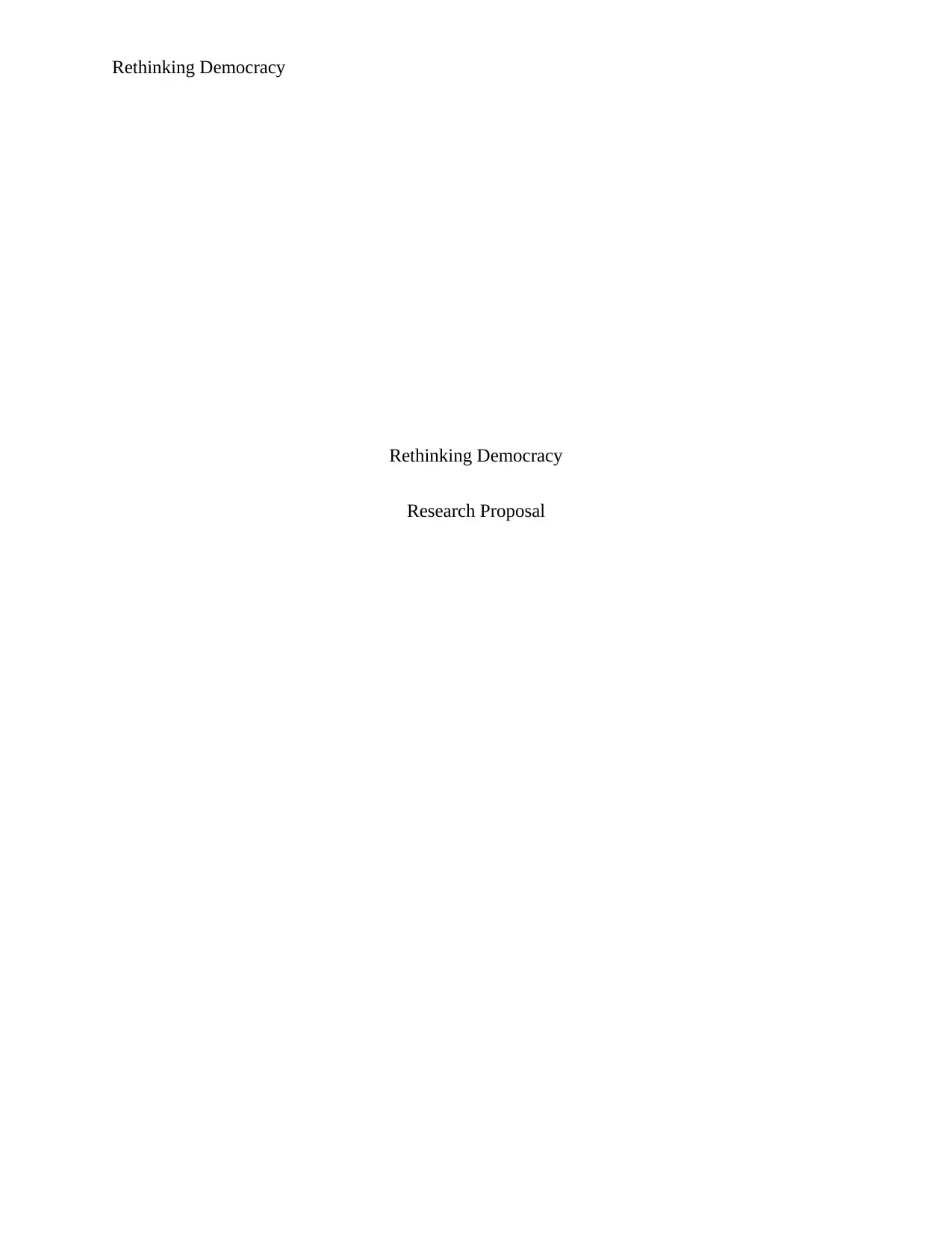
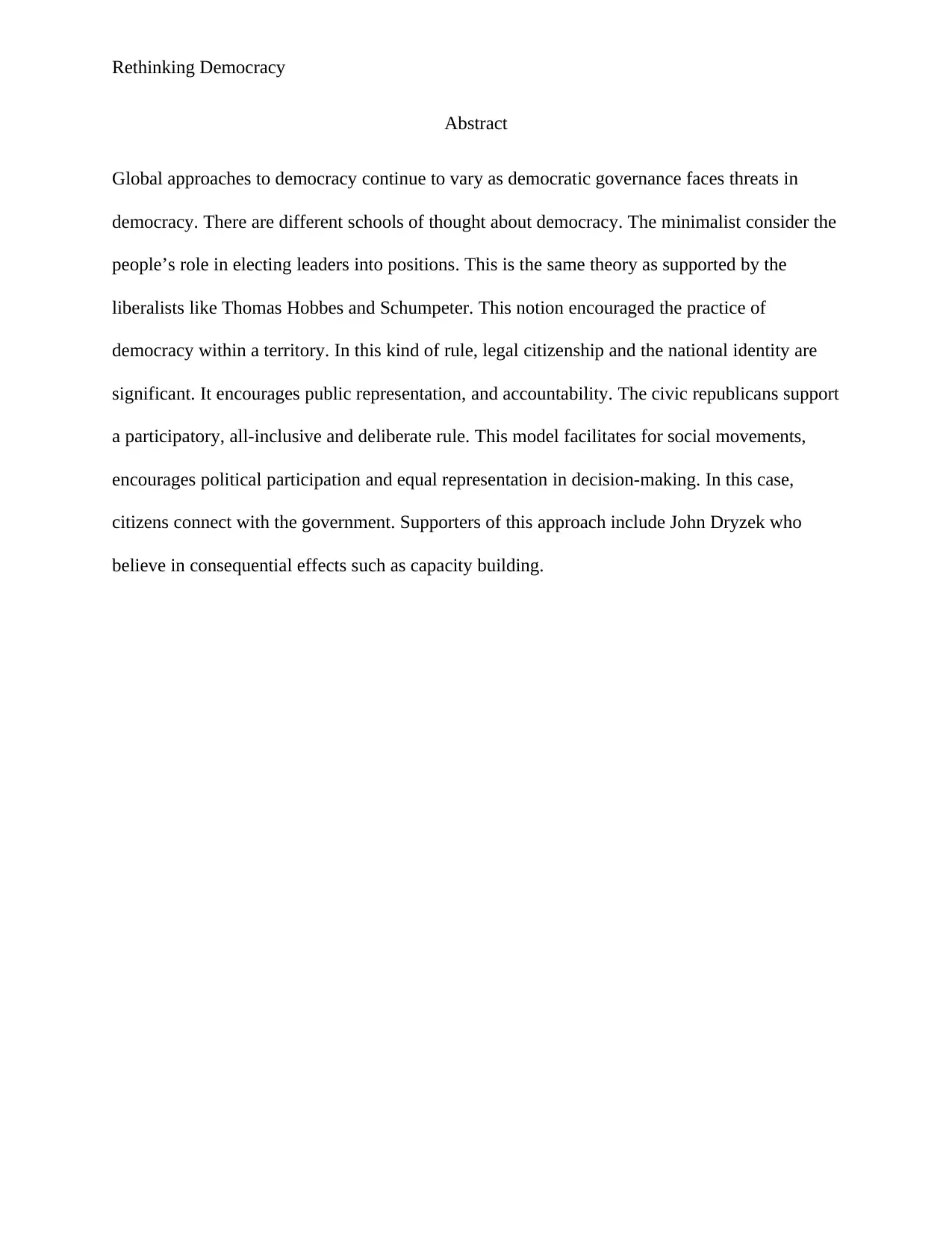
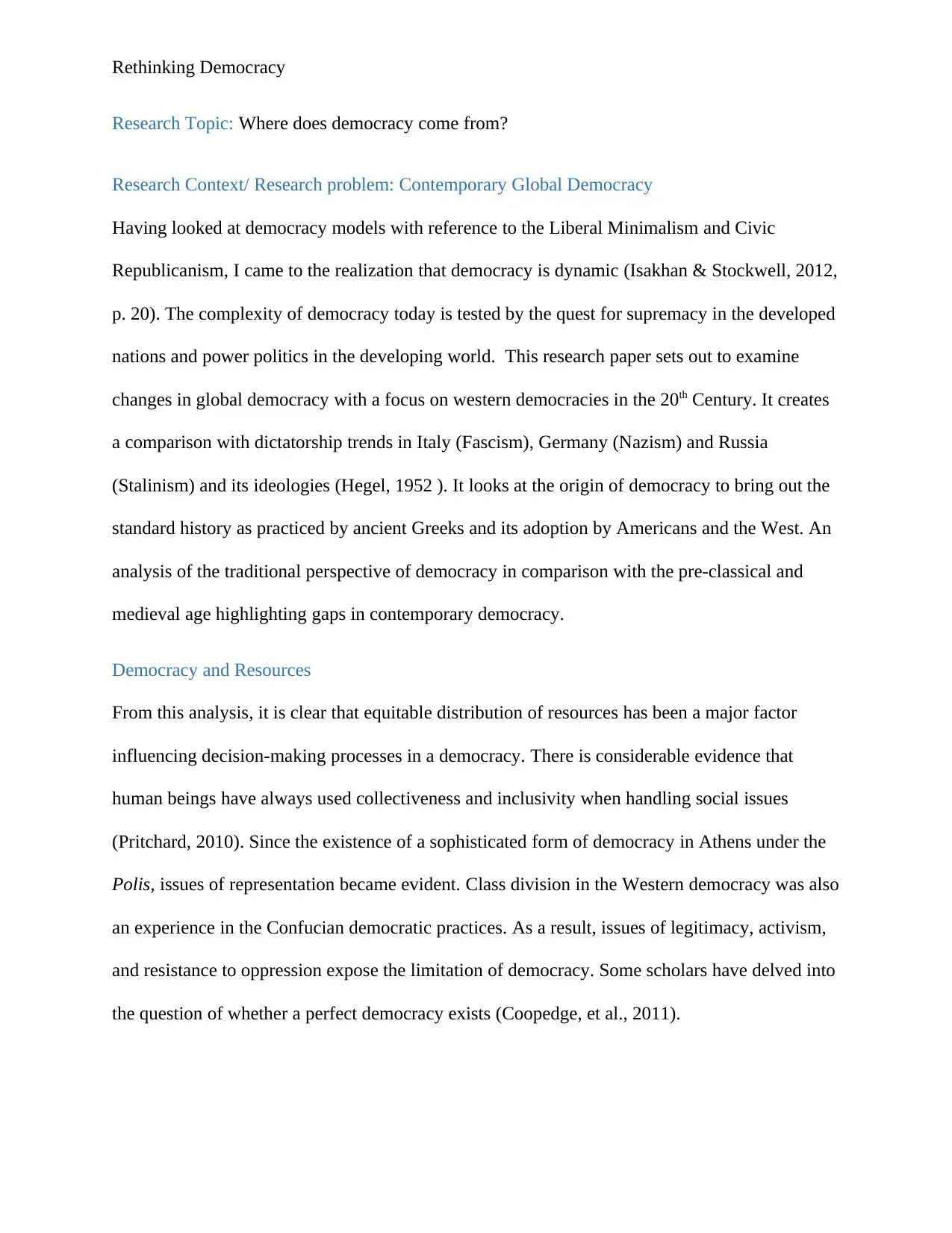

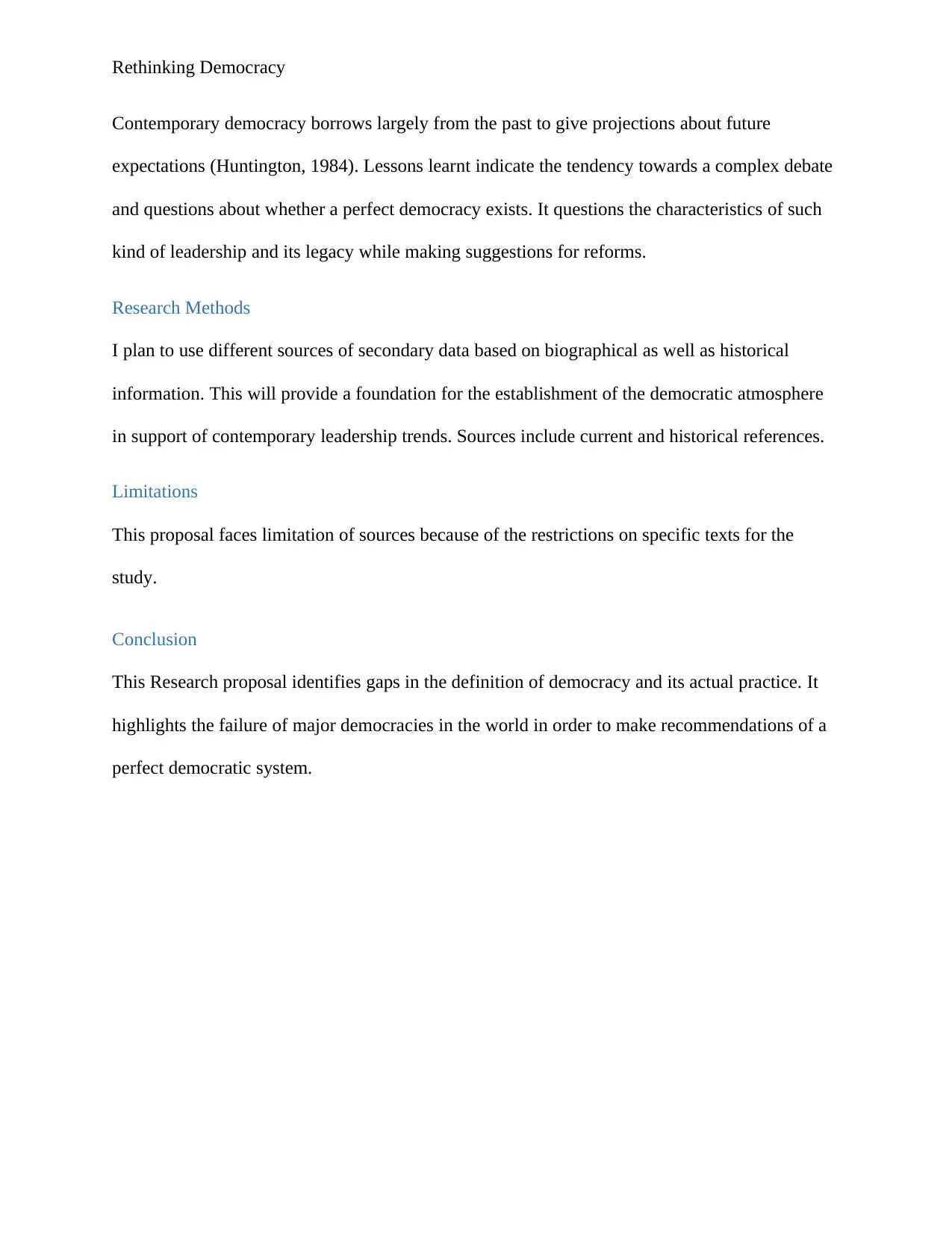
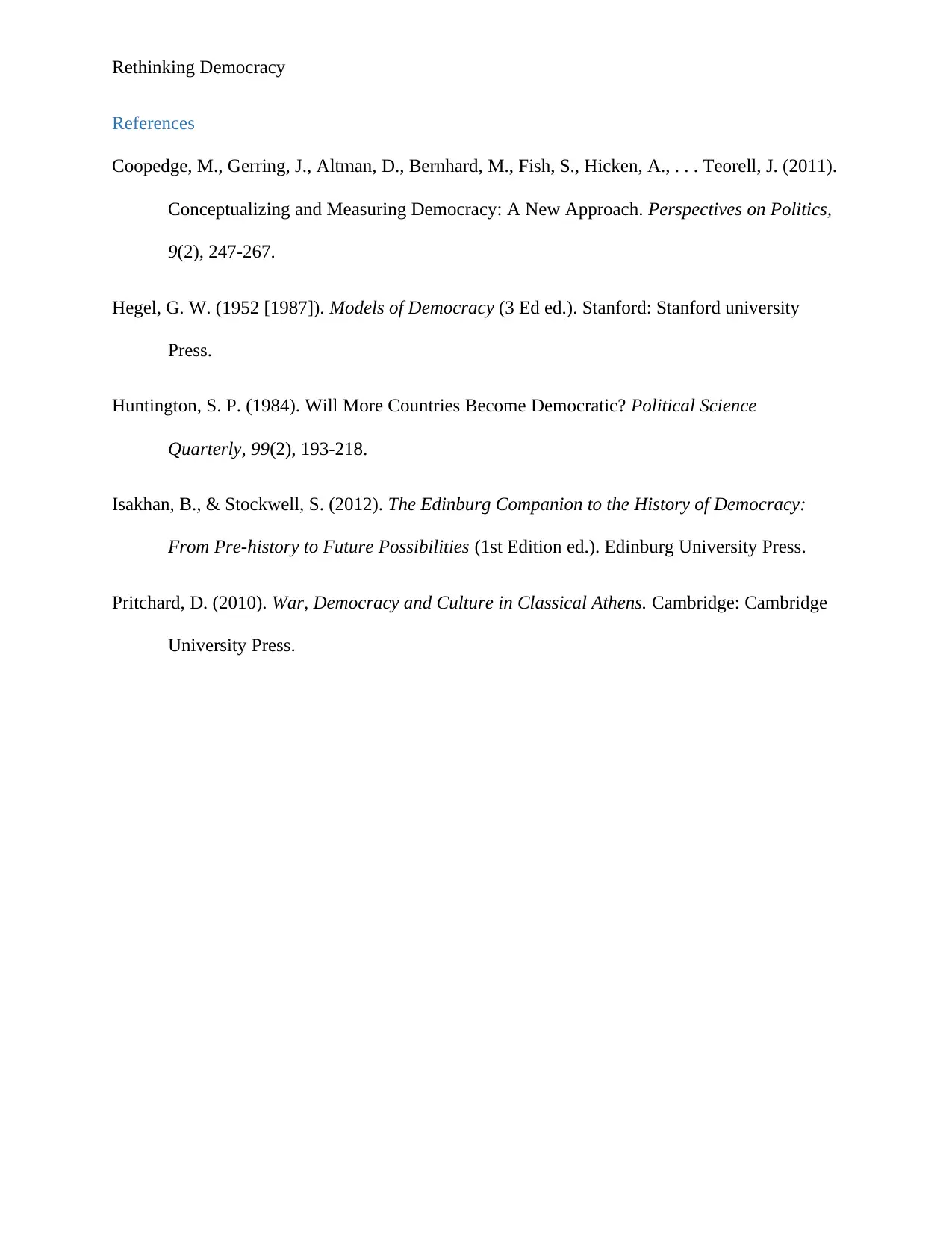
![[object Object]](/_next/static/media/star-bottom.7253800d.svg)